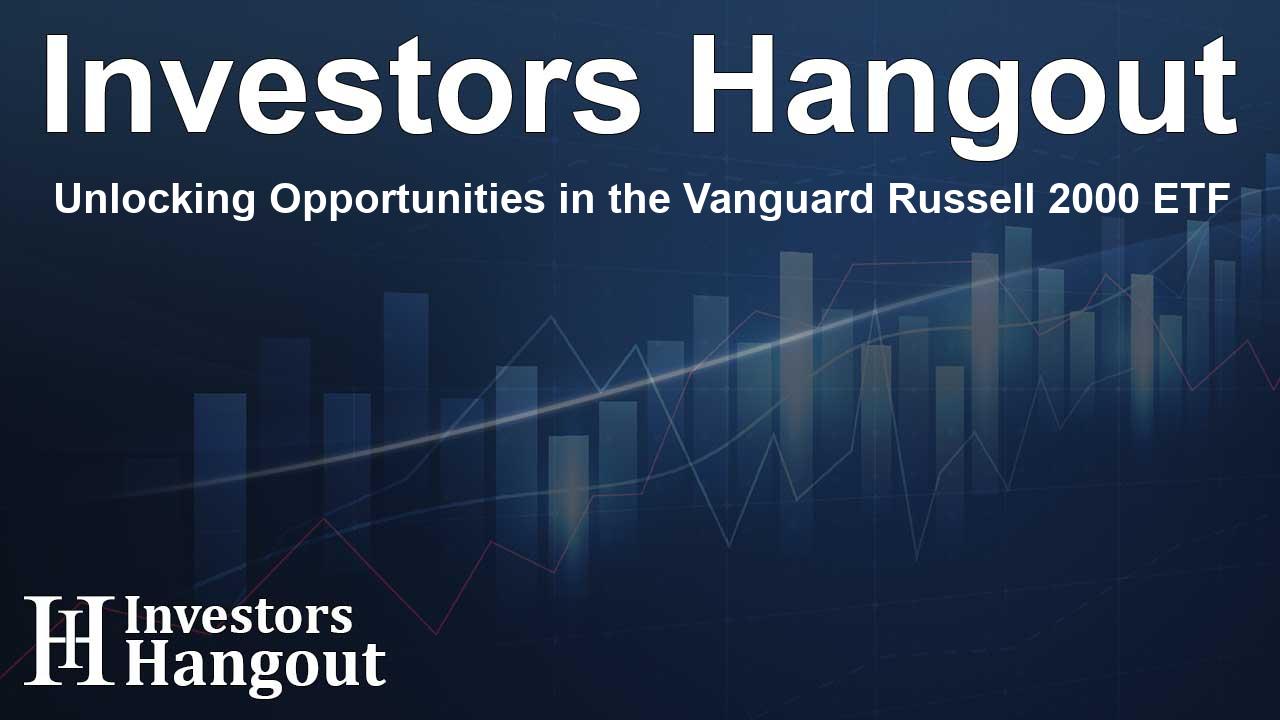Unlocking Opportunities in the Vanguard Russell 2000 ETF

The S&P 500's Impressive Performance
The S&P 500 index has recently achieved another remarkable milestone, showcasing a significant increase of 20% this year. This performance surpasses many predictions from Wall Street analysts who began this year skeptic about the index's potential.
Nonetheless, with rising concerns about certain sectors, particularly around artificial intelligence (AI) stocks, investors are beginning to question whether this bullish trend can persist. Some market indicators suggest that valuations across the S&P 500 are becoming excessive.
A Closer Look at Valuations
An example can be drawn from the Vanguard S&P 500 ETF which mirrors the performance of the S&P 500. Currently, it sits at a price-to-earnings (P/E) ratio of 28.7. This ratio is at a level we've not seen since the height of the pandemic, significantly above its historical average. Instances when the index exceeded this valuation were often followed by downturns, including the dot-com bust and the Great Recession.
Additionally, examining the so-called "Magnificent Seven" stocks reveals similar trends. Many of these leading companies are trading with P/E ratios above 30, indicating they may be overvalued. This trend raises questions about sustainability, particularly as the market begins to approach its limits.
Time for Sector Rotation
Traditionally, during a bull market, large-cap stocks lead the way. However, there's typically a phase where investment interest begins to shift towards mid and small-cap stocks. Given the current market valuations of large-cap stocks, it is possible that enthusiasm for these high-flying companies may have peaked.
As the S&P 500 continues its upward trajectory, many large-cap stocks are actually trading below their respective 52-week highs. This indicates that, in order for the overall market growth to endure, a rotation into smaller companies must occur.
Why Consider the Vanguard Russell 2000 ETF?
The Vanguard Russell 2000 ETF (NASDAQ: VTWO) is an appealing investment that offers exposure to small-cap stocks, which have lagged behind in this current bull market. The key reason for this lag is that smaller companies don’t benefit as extensively from the current AI-driven surge seen in many large-cap firms.
This small-cap ETF currently trades at a P/E ratio of just 17, presenting a striking 40% discount compared to the S&P 500. Such a significant discount is unlikely to be overlooked by the market for long. Furthermore, the Federal Reserve has begun to cut interest rates, creating a favorable environment for small-cap stocks that rely heavily on borrowing.
Potential Future for Small-Cap Investments
Historically, small-cap stocks have traded at a premium relative to large-caps, with data showing the S&P Small-Cap 600 averaged a 1.32 times valuation compared to the S&P 500 over the past two decades. However, the circumstances surrounding AI may have altered this trend temporarily.
As conditions stabilize, it is anticipated that small-cap valuations will begin to recover, moving closer to their historical average. Should the Vanguard small-cap index aim for a valuation equivalent to 1.3 times the S&P 500, substantial price growth would be necessary. Although this adjustment may not unfold immediately, small-cap investors could find fertile ground for growth over the coming years.
Final Thoughts: A Strategic Time for VTWO?
For those pondering an investment in the Vanguard Russell 2000 ETF, it is essential to consider market dynamics. With the potential for a broad market rotation incoming, the small-cap ETF represents a unique opportunity. This investment not only promises a diversified growth strategy but also appeals to those ready for market shifts that tend to favor smaller companies, especially in environments of declining interest rates.
Frequently Asked Questions
What is the Vanguard Russell 2000 ETF?
The Vanguard Russell 2000 ETF is an exchange-traded fund that aims to track the performance of small-cap stocks within the Russell 2000 index.
Why are small-cap stocks lagging behind?
Small-cap stocks have lagged because they are less exposed to the booming AI sector, which is predominantly led by larger companies.
What is the current P/E ratio of the Vanguard Russell 2000 ETF?
The current P/E ratio of the Vanguard Russell 2000 ETF is approximately 17, significantly lower than that of the S&P 500.
How do interest rates impact small-cap stocks?
Lower interest rates reduce borrowing costs, benefiting smaller companies more than larger firms, which leads to improved growth potential for small-caps.
Is now a good time to invest in small-cap stocks?
Considering the current market conditions and potential for a sector rotation, now may be an excellent time to invest in small-cap stocks, including the Vanguard Russell 2000 ETF.
About Investors Hangout
Investors Hangout is a leading online stock forum for financial discussion and learning, offering a wide range of free tools and resources. It draws in traders of all levels, who exchange market knowledge, investigate trading tactics, and keep an eye on industry developments in real time. Featuring financial articles, stock message boards, quotes, charts, company profiles, and live news updates. Through cooperative learning and a wealth of informational resources, it helps users from novices creating their first portfolios to experts honing their techniques. Join Investors Hangout today: https://investorshangout.com/
Disclaimer: The content of this article is solely for general informational purposes only; it does not represent legal, financial, or investment advice. Investors Hangout does not offer financial advice; the author is not a licensed financial advisor. Consult a qualified advisor before making any financial or investment decisions based on this article. The author's interpretation of publicly available data shapes the opinions presented here; as a result, they should not be taken as advice to purchase, sell, or hold any securities mentioned or any other investments. The author does not guarantee the accuracy, completeness, or timeliness of any material, providing it "as is." Information and market conditions may change; past performance is not indicative of future outcomes. If any of the material offered here is inaccurate, please contact us for corrections.